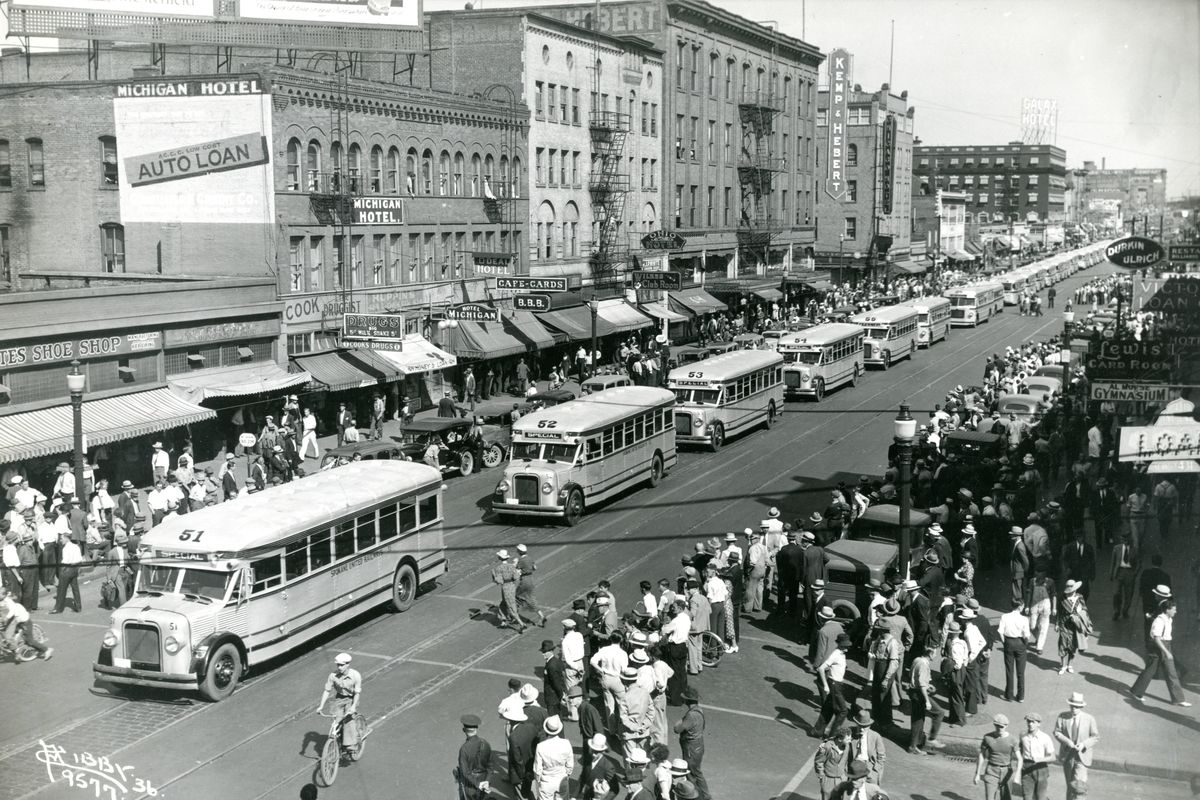Then and Now: Buses replace streetcars

In 1903, businessman Jay P. Graves consolidated electric streetcar lines to form the Spokane Traction Company.
His main competition was the local electric company, Washington Water Power. The streetcar operators battled for two decades before merging in 1922, under WWP ownership. The result, Spokane United Railways, now had a virtual monopoly on local transit.
S.U.R. bought a few motor buses in the 1920s. Buses were controversial because they traveled on roads paved by streetcar fares. Vehicle safety and comfort were issues because the first coaches were “a cheaply constructed body on a light truck or touring car chassis,” according to W.S. Melcher of the Motor Bus Men’s association in 1922.
Melcher said the cheap vehicles were used because the city would only grant six-month permits, and the uncertainty prevented the bus company from investing in the latest equipment. Melcher called the early machines “ramshackle affairs.”
In the early 1930s, new models now had an all-metal body, a powerful engine for hilly streets and a low-slung chassis for easy entry.
Millard Waldron, who had been hired in 1916 to drive streetcars, drove the first bus to replace a popular streetcar route in July 1931.
Under a newspaper photo of Waldron’s bus, the caption read: “The trip from Post and Main to 38th and Grand took 13 minutes and the bus just loafed along to do that.”
The flexibility and reliability of buses spelled the end of the streetcars era.
In August 1936, S.U.R. held a farewell parade of the last streetcars down Main Avenue, followed by their newest buses. The Spokane Chronicle declared Spokane the “first Pacific coast city with completely motorized transportation.”
In 1945, WWP sold the bus service to Pacific City Lines, part of a 14-city chain, and it was renamed Spokane City Lines.
Ridership peaked at 26 million rides per year in the late 1940s, then declined to around two million by 1968. After a 1968 strike by transit employees and five months without bus service, Spokane residents voted for a utility tax to fund the service. The city took over the troubled bus service in 1972.
Voters approved a .03-cent sales tax in 1981 to fund the transit system, which was renamed Spokane Transit Authority.